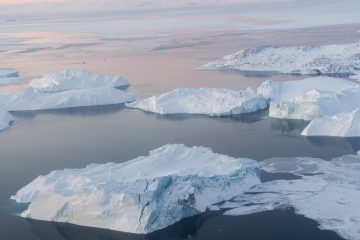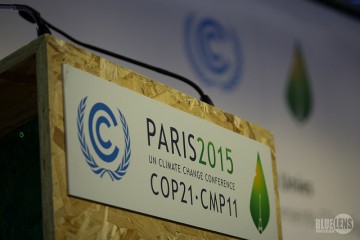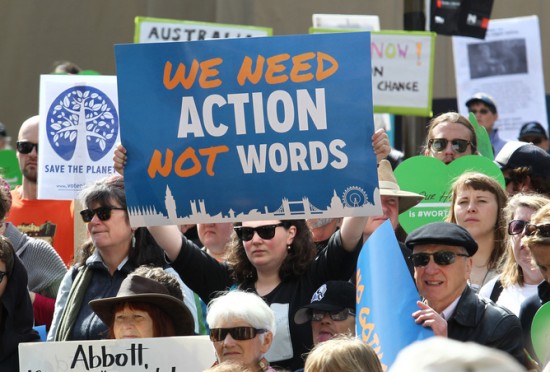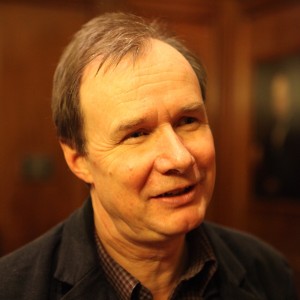
Huffington Post, BuzzFeed and Vice are blazing a new trail on climate change coverage
The deafening silence around climate change in the US presidential campaign has left leading climate scientists baffled by the absence of debate about the “greatest issue of our time”. Some commentators have laid the blame firmly on the US media for sticking too closely to the political agendas set by the candidates. But it is not just in the US where climate change and environmental issues have been virtually ignored. In the UK, a study by Loughborough University found that during the Brexit referendum, television news bulletins in the six-week period in May and June dedicated no time at all to environmental issues – despite the fact that much of UK environment policy is determined by the EU. Print media …

The positive Paris talks are not like Copenhagen – but how will media cope?
It has become a mantra here that Paris 2015 is not Copenhagen 2009. This time, the US and China are on board; the price of renewables has dropped by more than half; the vast majority of countries here have already pledged emission cuts and Paris is seen as a “staging post” not a final destination. But how different is Paris 2015 for the 3,700 media representatives accredited here? Like Copenhagen, where there were 4,000 from nearly 120 countries, the sheer volume of journalists makes the summits two of the most media-covered political events ever. So it’s a daunting task for anyone analysing the bewildering array of content the journalists are producing. A preliminary look at some of the hundreds of …

Doom and gloom won’t do it: here’s how to sell the climate change message
Each of the 125 leaders attending the New York climate summit last week has been given four minutes to speak to the world. They (or their aides) may well have dipped into the climate literature to add scientific ballast to their speeches. But they may not be as familiar with the vast array of academic studies on effective communication about climate change.
They should be. If world leaders and climate advocates really want to improve the chances of mobilising political will and citizen action behind a new deal, they will need to think carefully about what sort of key messages actually work.
Clearly there is a balance to strike between doom-ridden messages and “bright-side” opportunities, and uncertainties around the science and the expected effects of climate change must be factored in too. Can risk language help?
Newspapers perform a valuable role in enforcing local accountability
In some ways this dichotomy might appear rather antiquated. After all isn’t everything online now and what difference do delivery systems make? But in reality we still see wide divergences between media organisations in terms of both consumption and production. First, consumption: The general tendency across many countries is that most people rely far more on TV than on the press for news. In the UK the disparity is very marked, with TV way out in front. Ofcom reported in 2009 that 74% of people in the UK used TV as their main source of UK news, way ahead of other news sources. More recent 2010 Ofcom figures surveying internet users showed TV ahead of the internet and newspapers as …

News Media: Outside America, the future is much brighter
In the US debate over news there is an assumption among many that the Internet is killing news organisations. People point to the worrying figures about the numbers of journalists that have been laid off (with net newsroom employment down by more than 10,000 since 2007), the difficulties facing city and state newspapers, and to the dramatic decline of ad revenues. There’s no denying that these developments are worrying. But focussing on the US picture only tells a very partial part of the story about the relation between the news industry and the internet. The recent book that we produced at the Reuters Institute on The Changing Business of Journalism and its Implications for Democracy reveals that the US newspaper …
Media interest in climate change takes a dive
A year can be a very long time in the life of media interest. In December 2009, I was one of more than 4,000 journalists who attended the UN’s Copenhagen summit on climate change – probably the largest press presence for an international event outside of sport. The journalists came from 119 countries, and suffered the freezing temperatures and disappointing results. It wasn’t just the Western press who were there. Emerging powers like Brazil and China both had more than 100 journalists. (see the RISJ report at http://reutersinstitute.politics.ox.ac.uk/publications/risj-challenges/summoned-by-science.html) One year on, and the next major summit at the Mexican resort of Cancun was much less of an attraction – despite the beaches, tequila and abundance of sun. This time, around …










